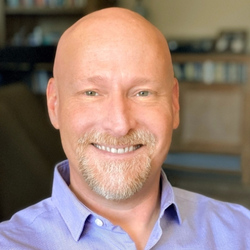
Ken Weingardt, PhD, is the Director of Training and Education and a Clinical Advisor at Heroic Hearts Project, which provides psychedelic psychotherapy for veterans. He has over 20 years of experience designing and implementing web and mobile health programs at the US Department of Veterans Affairs. As a licensed clinical psychologist, Ken provides psychedelic-assisted psychotherapy treatments to veterans.
Psychedelic-assisted therapy is evolving from a fringe theory to a promising modality for healing trauma, particularly among veterans. As traditional treatments often fall short, many are wondering how these medicines can be integrated safely and effectively into clinical and community settings. What makes psychedelic work transformative, and what safeguards make it ethical?
According to psychologist Ken Weingardt, the key lies in preparation, integration, and respect for each client’s cultural and emotional context. He recommends understanding moral injury, survivor’s guilt, and the unique reintegration challenges veterans face. Additionally, clinicians should pair evidence-based methods with peer support and recognize that healing begins after the medicine.
In this episode of Living Medicine, Dr. Sandy Newes sits down with Ken Weingardt, PhD, Director of Training and Education and a Clinical Advisor at Heroic Hearts Project, to discuss how psychedelics support veteran healing. He describes the use of MDMA therapy for trauma, the role of peer support in recovery, and why integration and community are essential for lasting transformation.
This episode is brought to you by the Living Medicine Institute.
LMI is a training, resource, and membership program educating providers about the legal and safe use of psychedelic-assisted psychotherapy.
To learn more or participate, visit https://livingmedicineinstitute.com.
Leave a Reply
You must be logged in to post a comment.